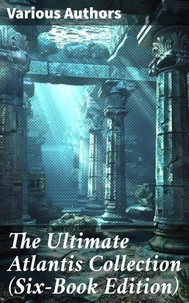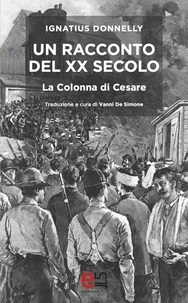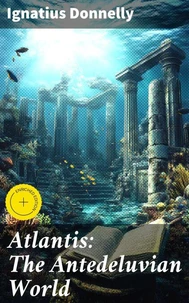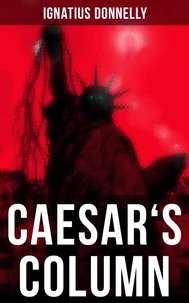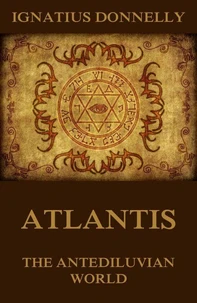Ragnarok : the Age of Fire and Gravel
Par :Formats :
Disponible dans votre compte client Decitre ou Furet du Nord dès validation de votre commande. Le format ePub est :
- Compatible avec une lecture sur My Vivlio (smartphone, tablette, ordinateur)
- Compatible avec une lecture sur liseuses Vivlio
- Pour les liseuses autres que Vivlio, vous devez utiliser le logiciel Adobe Digital Edition. Non compatible avec la lecture sur les liseuses Kindle, Remarkable et Sony
 , qui est-ce ?
, qui est-ce ?Notre partenaire de plateforme de lecture numérique où vous retrouverez l'ensemble de vos ebooks gratuitement
Pour en savoir plus sur nos ebooks, consultez notre aide en ligne ici
- Nombre de pages310
- FormatePub
- ISBN859-65--4734271-7
- EAN8596547342717
- Date de parution16/09/2022
- Protection num.Digital Watermarking
- Taille542 Ko
- Infos supplémentairesepub
- ÉditeurDIGICAT
Résumé
In "Ragnarok: The Age of Fire and Gravel, " Ignatius Donnelly presents a captivating exploration of the catastrophic end of the last Ice Age, intertwining mythology, geology, and archaeology. Through a compelling narrative, Donnelly postulates that an ancient cataclysm could have significantly influenced human civilization, echoing the mythological tales of Ragnarok from Norse tradition. His literary style is a blend of passionate prose and rigorous scholarship, reflecting the spirit of the late 19th century when archaeological discoveries were reshaping the understanding of human history, and scientific inquiry was gaining prominence in the narrative of human progress.
Donnelly, a former Congressman and an ardent supporter of populist causes, was deeply inspired by the intersection of science, mythology, and the quest for truth. His extensive background in literature and history, combined with his fervent interest in lost civilizations, empowered him to delve into the forgotten cataclysms of the Earth's past. "Ragnarok" serves as a testament to his belief in the interconnectedness of mythic narratives and historical events, reflecting a broader intellectual curiosity prevalent during his time.
For readers intrigued by the convergence of science and mythology, "Ragnarok: The Age of Fire and Gravel" offers profound insights and compelling arguments. Donnelly's thought-provoking analysis encourages a reevaluation of historical narratives while highlighting the resilience of human civilization in the face of disaster. This work is a must-read for anyone fascinated by the enduring impact of cataclysm on the development of human societies.
Donnelly, a former Congressman and an ardent supporter of populist causes, was deeply inspired by the intersection of science, mythology, and the quest for truth. His extensive background in literature and history, combined with his fervent interest in lost civilizations, empowered him to delve into the forgotten cataclysms of the Earth's past. "Ragnarok" serves as a testament to his belief in the interconnectedness of mythic narratives and historical events, reflecting a broader intellectual curiosity prevalent during his time.
For readers intrigued by the convergence of science and mythology, "Ragnarok: The Age of Fire and Gravel" offers profound insights and compelling arguments. Donnelly's thought-provoking analysis encourages a reevaluation of historical narratives while highlighting the resilience of human civilization in the face of disaster. This work is a must-read for anyone fascinated by the enduring impact of cataclysm on the development of human societies.
In "Ragnarok: The Age of Fire and Gravel, " Ignatius Donnelly presents a captivating exploration of the catastrophic end of the last Ice Age, intertwining mythology, geology, and archaeology. Through a compelling narrative, Donnelly postulates that an ancient cataclysm could have significantly influenced human civilization, echoing the mythological tales of Ragnarok from Norse tradition. His literary style is a blend of passionate prose and rigorous scholarship, reflecting the spirit of the late 19th century when archaeological discoveries were reshaping the understanding of human history, and scientific inquiry was gaining prominence in the narrative of human progress.
Donnelly, a former Congressman and an ardent supporter of populist causes, was deeply inspired by the intersection of science, mythology, and the quest for truth. His extensive background in literature and history, combined with his fervent interest in lost civilizations, empowered him to delve into the forgotten cataclysms of the Earth's past. "Ragnarok" serves as a testament to his belief in the interconnectedness of mythic narratives and historical events, reflecting a broader intellectual curiosity prevalent during his time.
For readers intrigued by the convergence of science and mythology, "Ragnarok: The Age of Fire and Gravel" offers profound insights and compelling arguments. Donnelly's thought-provoking analysis encourages a reevaluation of historical narratives while highlighting the resilience of human civilization in the face of disaster. This work is a must-read for anyone fascinated by the enduring impact of cataclysm on the development of human societies.
Donnelly, a former Congressman and an ardent supporter of populist causes, was deeply inspired by the intersection of science, mythology, and the quest for truth. His extensive background in literature and history, combined with his fervent interest in lost civilizations, empowered him to delve into the forgotten cataclysms of the Earth's past. "Ragnarok" serves as a testament to his belief in the interconnectedness of mythic narratives and historical events, reflecting a broader intellectual curiosity prevalent during his time.
For readers intrigued by the convergence of science and mythology, "Ragnarok: The Age of Fire and Gravel" offers profound insights and compelling arguments. Donnelly's thought-provoking analysis encourages a reevaluation of historical narratives while highlighting the resilience of human civilization in the face of disaster. This work is a must-read for anyone fascinated by the enduring impact of cataclysm on the development of human societies.



